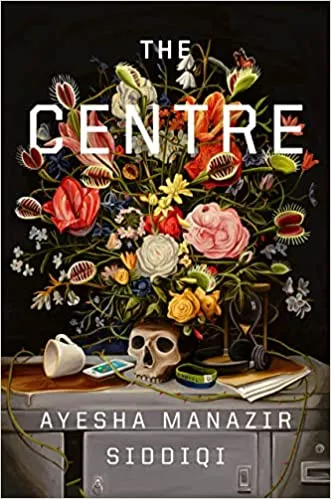
It’s not that translation is a subjective process, exactly. In fact, in a way, it’s highly mathematical. It’s about retaining the feeling, the thing underneath. It’s as if you go underground, and there are all these shapes and colors, and there you see that, oh, died in this language is closest in color and shape, consistency and texture, to passed away in this other language. And it feels like a personal accomplishment when you make the match and haul the pair back up to the surface. And somehow, I was able to make those matches. I could just feel them. But the problem was that this feeling didn’t translate into any kind of significant action, and for reasons I couldn’t grasp, I was unable to get to that place I longed to reach. Whatever that gap was between editor and writer, print-copier and painter, midwife and mother, well, I’d spent my whole life trying to leap over that gap and had consistently fallen into the abyss. The truth is, whenever I saw a beautiful painting, or read a great novel, I felt joy, of course, but something in me would also seethe. Jealousy is an ugly thing. Even ambition, particularly in a woman, can be undesirable. But this other feeling—this feeling of a life not fully lived—that was worse, practically unbearable. I felt constantly thwarted, and I didn’t even know by what.
Other times, however, this attention made me feel like the world was a shallow, fickle place, without depth or substance, hollow, vacuous, matlabi, and cruel. It was as if, overnight, my words mattered, even when they were, frankly, somewhat mundane or being uttered by a million others who were patronized or outright ignored. The same people who I’d previously been invisible to were now looking at me with something like awe. And not just awe, not always awe. I sometimes detected a kind of presumed beneficence in their gaze that reminded me of photographs of white missionaries in India. So proud were they of having a brown woman on their stage, of humbling themselves by taking her seriously. And other times, I saw a variation of that beneficence, something more like penitence, like they wanted me to tell them what was wrong with them. As if, by having me up there, they were somehow atoning for their sins.
And maybe I was meant to stay in Pakistan, not be transplanted into this harsh and windy place. We’re meant to die where we are born, surely? When I first flew to England, my skin became scaly and dry, my tummy uncomfortable, and my bladder confused. It took forever for my body to adjust. Someone told me then—I can’t remember who, probably Naima—that although our bodies travel by plane, the soul still makes its way on foot.
But still, Karachi was more like I imagined Bombay to be. You could move with at least a bit of anonymity there. Delhi, like Lahore, felt spatially more expansive but socially more claustrophobic.
“The narcissism of small differences.” That’s a term coined by Freud. “Der Narzissmus der kleinen Differenzen.” It means, I think, that when two things are very similar, you end up inflating the small differences between them far more than you would the larger differences between two less similar things. I think this is the game that India and Pakistan play, and so, I felt a strange conflict within when I would notice such things.
Amma would say to me, when I was a young teenager, “Don’t do anything that you wouldn’t feel comfortable being printed in the headlines of all the newspapers the next day.” At first, I had taken Amma’s words as a warning. I thought she was telling me, “Keep it clean.” But later, I reconsidered her words, converting what I’d previously internalized as a call toward shame into an argument against it. Amma wasn’t saying to keep it clean, I decided. She was saying, let the dirt be known. She knew, after all, that things could never stay clean. Amma had tasted the blood. She’d meant, I decided, that I should own my life. Claim it. Every last drop.